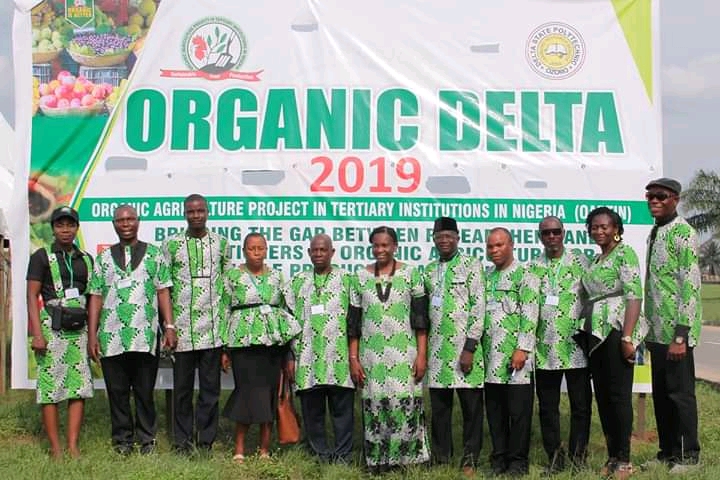Organic Agriculture Professionals in Tertiary Institutions in Nigeria, OAPTIN has lamented the wide gap between researchers and practitioners of organic agriculture, thereby calling for the enactment of Policies that will guide the operation and practice of organic agriculture in the country.
OAPTIN, in a communiqué issued after the 15th National Organic Conference of Organic Agriculture Professionals in Tertiary Institutions in Nigeria Held in Ozoro, Delta State, Nigeria, with the theme “Bridging the Gap between Researchers and Practitioners of Organic Agriculture for Sustainable Production and Consumption” applauded the Federal Government of Nigeria for establishing a Division of Organic Agriculture within the Department of Farm Input Supply and Services of the Federal Ministry of Agriculture and Rural Development (FMA&RD), Abuja to oversee the introduction of organic agriculture inputs into the farming operations in Nigeria.
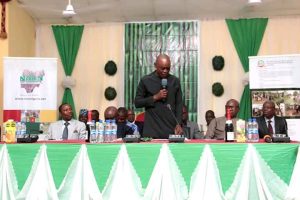
The communiqué signed by Prof. E. A Makinde, OAPTIN National Coordinating Scientist and Dr. Mrs. Atoma Charity Nwamaka, LOC Chairperson, with over 58 participants from 16 Higher Educational Institutions (HEIs), National Board of Technical Education (NBTE), Delta State Ministry of Agriculture and farmers attending, Recalled that organic agriculture is actively contributing to all the 17 UN sustainable development goals (SDGs) with special emphasis on number 2, End hunger, achieve food security and improved nutrition and promote sustainable agriculture, and Number 12, Ensure sustainable consumption and production pattern.
“That generality of Nigerians are favorably disposed towards changing their food systems to a safer and more nutritious mode. FMA&RD, other National Agencies like National Agricultural Quarantine Service of Nigeria (NAQS), Standards Organisation of Nigeria (SON), National Agency for Food and Drug Administration and Control (NAFDAC) and others are saddled with the responsibilities of ensuring that Nigerians eat safe and wholesome food.
The communiqué called for immediate training of Extension Agents who are the closest group to farmers on basic principles and practices of organic agriculture to fast track effective communication of research findings to the end users. The operation of the various sub-systems in the entire value chain of any commodity as a whole system with a view to bridging the gap, within the system.
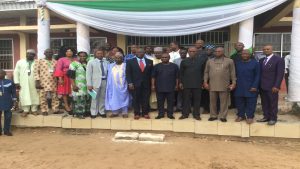
“The setting up of Organic Agriculture Technology Development, Transfer and Utilization System comprising of the Government, Researchers, Extension Agencies, Input suppliers and Consumers. Research efforts that are demand driven and problem solving by researchers involved in organic agriculture. The Stepping up of advocacy on the untapped merits and benefits of practicing organic agriculture and consuming healthy organic foods.
“Policies that will guide the operation and practice of organic agriculture in the country. Relevant bodies e.g. NOAN and NICERT involved in the certification of organic farms to step their activities nationwide. Ready availability of farm inputs required for organic agriculture operations. Massive publicity of the current National Standards for organic agriculture production system. The HEIs to be actively involved in the dissemination of research findings to the end users.
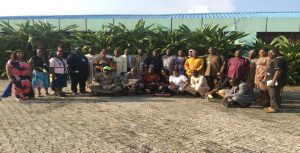
“There is wide gap between researchers and practitioners of organic agriculture despite the huge and significant role organic agriculture can contribute to the development of agriculture as a sector of the economy. That organic agriculture being a low input production system, though knowledge intensive, can be easily mainstreamed into the agricultural system of Nigeria where small to medium scale farmers produce about 80% of the food Nigerians consume. That quite a large number of consumers in Nigeria are now consciously avoiding pesticide-laced foods because of the health risks involved in eating such foods.
The communiqué resolved that all stakeholders in organic agriculture, especially in the HEIs should strive to develop practicable and workable technologies that can be easily adopted by end users (farmers, processors and consumers) and thereby fast track the mainstreaming of organic agriculture into our farming system. There is urgent need to develop the capacity of Extension agents in the area of organic agriculture since they are the closest group to the grass root.
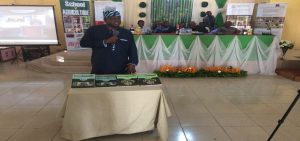
While acknowledging that OAPTIN has been in existence for sixteen years in the Universities across the six geopolitical zones, the organization pledged that “as key stakeholders (researchers) we will put our acts together, form viable and formidable research groups that can adequately tackle emerging challenges in organic agriculture in Nigeria with a view to repositioning agriculture in the land scape of Nigerian economy.
The communiqué also urged that present Division under which organic agriculture is anchored, be upgraded into a Directorate for more effective coordination of organic agriculture related activities in the nation. A Research Institute for Organic Agriculture should be established with clearly defined mandates to coordinate development of technologies in organic agriculture.
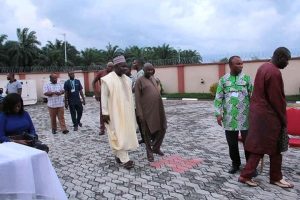
“Appropriate subsidies or credit facilities be approved for farmers/producers and processors transitioning to organic agriculture from the conventional system to encourage them, Procedures for certification either for local or international trade should be made less cumbersome and more affordable for stakeholders by the Government.
“Government and relevant Agencies to support various organic agriculture platforms/bodies nationwide to enhance their performances, Local and international market outlets be identified for organic agriculture practitioners by Government and other relevant agencies and bodies. The Management of HEIs where OAPTIN is operating should endeavor to assist the Network with necessary facilities such as farm land, furnished offices and other logistics across the six geopolitical zones.
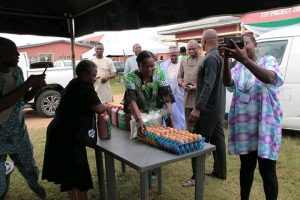
While agreeing to meet in Federal University, Dutse, Jigawa State, Nigeria in November 2020, Prof. E. A Makinde, OAPTIN Nat. Coordinating Scientist and Dr. Mrs. Atoma Charity Nwamaka, LOC Chairperson thanked His Excellency Senator Dr. Ifeanyi Arthur Okowa, Executive Governor of Delta State, Prof. Patrick Muoboghare, Commissioner for Higher Education, Delta State, Hon. Julius Egbedi, Commissioner for Agriculture and Natural Resources, Delta State, Prof. O. J. Akpodiete, Rector, Delta State Polytechnic, Ozoro. Collaborators Prof. F.K Salako, Vice Chancellor of FUNAAB, National Coordinator of OAPTIN, all the Principal Officers of OAPTIN, Association of Organic Agriculture Practitioners of Nigeria (NOAN), OML 26CDB, Isoko North Local Government Council, Rt. Hon. Funkekeme Solomon, ZINAK Construction Limited, Distinguished participants and visitors from all over Nigeria.
